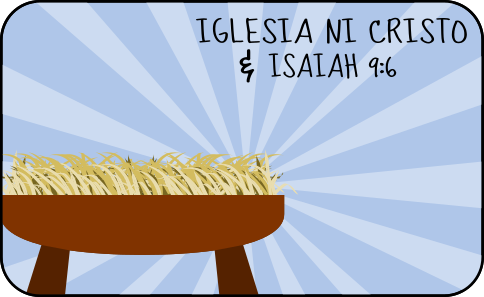Is Our Lord Jesus Christ the Mighty God of Isaiah 9:6?

Isaiah 9:6 is a popular verse that is often read when people remember the birth of our Lord Jesus Christ. It reads as follows:
Isaiah 9:6 (ESV) For to us a child is born, to us a son is given;
and the government shall be upon his shoulder,
and his name shall be called
Wonderful Counselor, Mighty God,
Everlasting Father, Prince of Peace.
This verse seems to be clearly stating that Jesus would be called Mighty God, but some, such as the Iglesia Ni Cristo, have questioned that understanding. Are they correct? When we examine their arguments, we see that they fall short and that this verse is indeed stating that Jesus is our Mighty God.
The singularity of the word "name" is irrelevant.
One of the first points the INC makes is that this is a single name, not multiple names. It is true, that the word "name" is singular, but this does not really change anything. Either we take this to mean he is called these different titles or his name (in the sense of reputation) is that of these different attributes.
The INC gains absolutely nothing by making this observation, but then why do they insist on putting such emphasis on this fact? They only call it to attention to make the work of those they disagree with look sloppy. This is nothing more than a red herring designed to make it look like they know more about this verse than their carefully selected opponents.
This name is not a statement about the Father.
The INC also points out that many Hebrew names speak of God. For example, the name "Joshua" means "God is savior". Therefore, they say that one's name including a mention of God is expected, and does not mean that person is indeed God.
However, all these Hebrew names which mention God, make statements about him.
They all say full sentences about God, like "God is
Jesus may rightly be called the Everlasting Father.
Jesus is not God the Father, but the word "father" does not have only one meaning. In the Old Testament, the word "father" is primarily applied to God to refer to his role as creator. The Son is indeed the everlasting creator, so there is no reason to object to this phrase as speaking of the Son.
Conclusion
In Isaiah 9:6, Jesus is clearly called "Mighty God". The INC's arguments do not constructively attempt to understand the text. Rather they distort the text because they wish to push their false view of God on the text. They are not willing to accept the plain and natural reading, but instead push for an unnatural one.
We should be willing to believe the Bible even when it says things that are difficult to understand. When it calls our Lord Jesus Christ "Mighty God", we must believe the Bible to be true and that he is Mighty God.
[1] The present author is familiar with the basics of Hebrew and is aware that linking verbs (such as "is") are not always explicitly present. However, to his knowledge the INC has never made such a bold claim as to cite this feature of Hebrew in contradiction to the many experts who have agreed on the proper translation of this verse. Therefore, at this time there is no need to address such a potential counterpoint. However, it should be noted that such a translation would not be harmonious with the usage of the same phrase in Isaiah 10:21.
